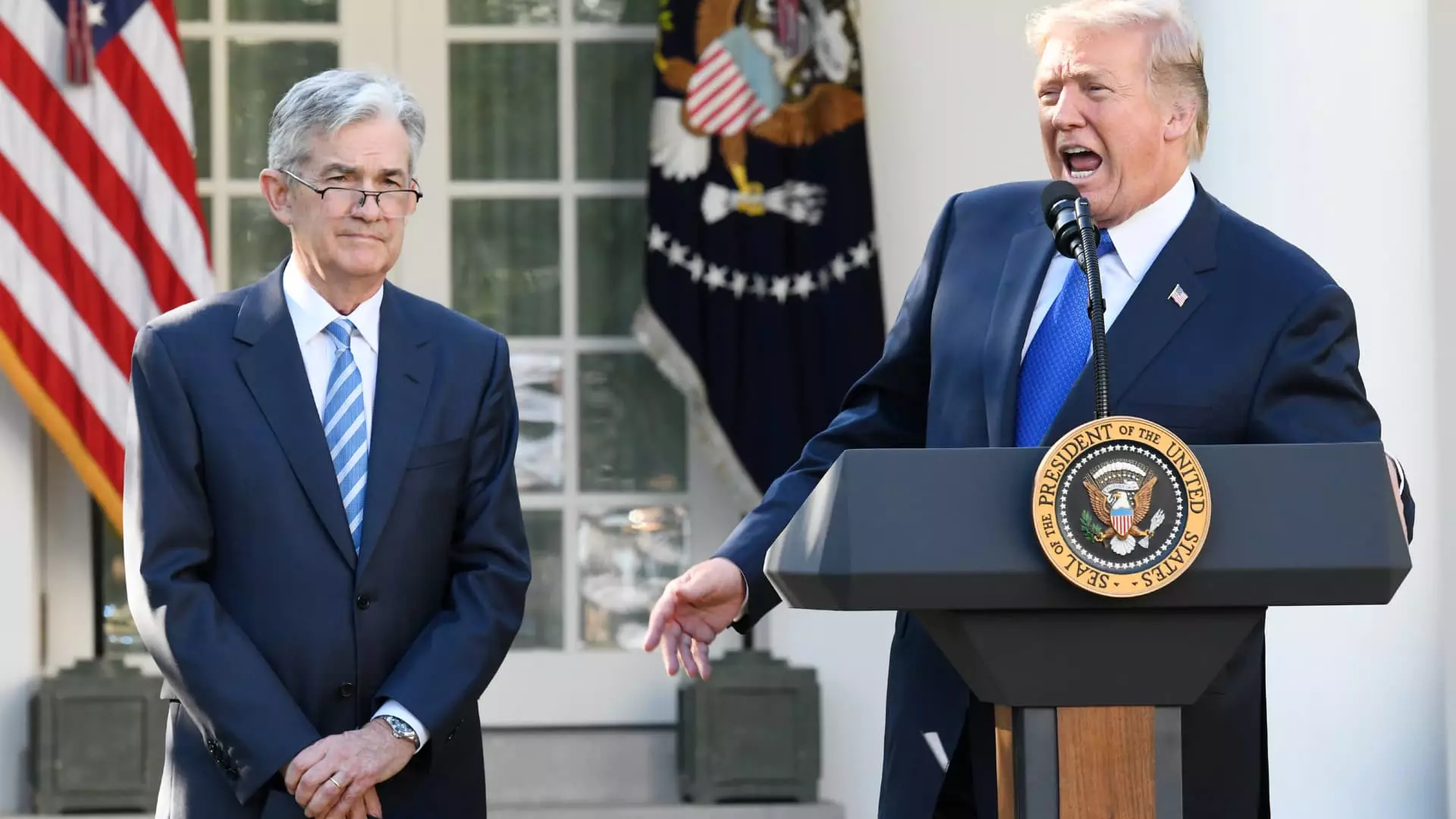In the chaotic theater of American politics, few acts have been as persistent as President Donald Trump’s relentless calls for Federal Reserve Chairman Jerome Powell to slash interest rates. Just recently, Trump bellowed on Truth Social for a drastic one-percentage-point cut, even in the face of a favorable jobs report that revealed stronger-than-expected nonfarm payroll growth. The juxtaposition is striking: a president who proclaims the economy’s health, yet seeks radical fiscal measures to boost it further. This contradictory stance not only raises questions about Trump’s understanding of economic fundamentals but also spotlight the irresponsible behavior expected in political discourse.
While Trump touted the robustness of the U.S. economy — a claim many challenge — his demand for aggressive monetary policy he’s often branded as “Rocket Fuel” seems disjointed from economic reality. It’s hard to ignore the projection that, according to the current market trends and interest rate forecasts, the Federal Reserve is unlikely to heed the president’s fervent wishes anytime soon. There is something inherently troubling about a president who oscillates between boasting about economic vitality and simultaneously demanding drastic measures to further push the economic envelope.
The Economic Tug of War
Trump’s tirade against Powell is emblematic of a broader critique directed at the Federal Reserve: the intensifying impatience with an institution designed to approach its mandate with caution and evidence-based decision-making. While it may seem enticing for a central bank to lower interest rates as a remedy for sluggish growth or inflationary pressures, it must tread carefully. Trump’s fixation on achieving lower borrowing costs, especially when his very policies have had disruptive effects on the economy, underlines a political maneuver that could lead to inflation without any underlying economic benefit.
Fed officials are acutely aware of the implications of trade policies like tariffs, which Trump has championed. His contention that other central banks are slashing rates while the Fed stands firm reflects a misunderstanding of economic contexts. Each economy has its unique dynamics influenced by domestic and global factors. The European Central Bank, for instance, lowered its rates following localized economic troubles that simply do not parallel the U.S. situation. Such oversimplification in Trump’s rationale negates the complexities of monetary policy and breeds a dangerous political climate where economic ignorance reigns.
A Dangerous Game of Inflation
Trump’s contention for immediate rate cuts positions him as a populist leader driven by short-term gain rather than long-term stability. His assertion that lower rates would help manage impending debt obligations borders on reckless given that inflation is an ever-present specter in economic theory. Yes, reduced rates could bolster some sectors in the short term, yet if accompanied by rising prices, the American public could bear the brunt of a weakened dollar and higher costs of living.
The president’s claim that inflation could be managed by adjusting rates upward later is akin to playing a high-stakes gambling game. The notion that policymakers can deftly navigate both the complexities of economic recovery post-COVID-19 and manage inflation is overly optimistic, if not naive. This cavalier approach places Trump’s political ambitions over the well-being of the national economy, showcasing a detachment from the severe implications that poorly timed monetary policy changes can invoke.
A Game of Blame
What’s equally concerning is Trump’s ongoing habit of casting Powell as a scapegoat for his own policy missteps. With phrases like “‘Too Late’ at the Fed is a disaster!”, the president is not merely venting frustrations; he is sowing discord between political leaders and economic stewards. A healthy economy requires trust and coordinated policy-making efforts. Yet Trump’s harsh rhetoric and blame-shifting reveal a destructive tendency to undermine institutions designed to serve the long-term interests of the nation.
With his latest demands for Powell to capitulate to his whims, Trump risks eroding the credibility of the Fed further. Market confidence is delicate, and the intertwining of political pressure with economic decisions could lead us down a treacherous path. The consequences of fluctuating interest rates can reverberate far beyond short-term stimuli; they affect mortgage rates, retirement plans, and business investments.
In a political landscape that demands accountability and thoughtful governance, Trump’s erratic influence on monetary policy stands to challenge both. Rather than galvanizing a united front based on shared economic interests, his public proclamations serve as fraught distractions that could detract from the genuine challenges facing the American economy today. In the end, informed and temperate governance will be the true catalyst for sustainable growth — not impulsive and reckless demands for immediate action.


Leave a Reply